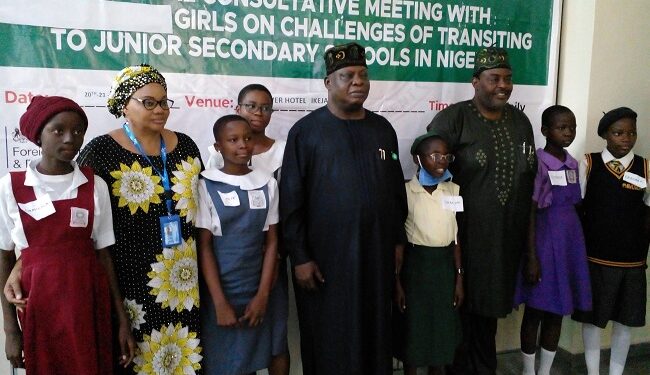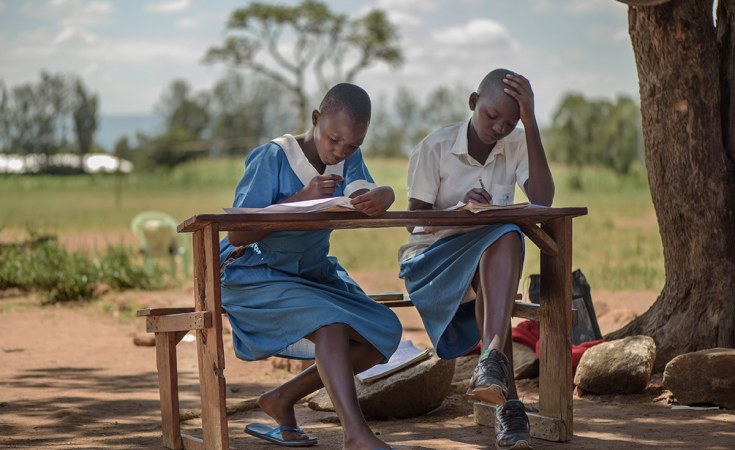The Universal Basic Education Commission has expressed concern over girls’ non-completion of basic education across the country and has organized consultative meetings with girls, in partnership with UNICEF, to highlight their challenges of transiting to junior secondary schools.
Speaking at the two-day meeting with girls from South-West states in Lagos recently, the UBEC Executive Secretary, Dr. Hamid Bobboyi, said available data indicated that primary school enrolment rate for the girl-child starts high and drops significantly with less than 30 per cent of the enrollees transiting to the junior secondary level.
He said over time, the government at federal and state levels, the private sector, public and private institutions and organizations have implemented various interventions geared towards addressing the girl-child challenge.
However, he said gaps still exist in this direction prompting renewed concerns and programmed by UBEC to nip the dangerous trend in the bud.
Bobboyi, represented by the Deputy Executive Secretary, Services, Dr. Isiaka Kolawole, said some challenges include cultural factors, poverty, parents’ unwillingness and social problems.
He said the meeting was to analyze the challenges, as in-depth knowledge of the issues and the factors that fuel the anomalies could lead to the initiation of effective and result-oriented interventions for addressing them.

He added that the information from the consultation would be streamlined into policy actions that will impact basic education in the country.
The UBEC boss also stressed involving parents in schools management.
Bobboyi restated that the attainment of quality and equal education within the context of the contemporary society rests heavily on the girl-child, as girls, when properly educated, are known to transit to and assume higher family responsibilities as mothers with increased capacity and relentless push for the education of their children and other family members.
“To this end, and as part of efforts by UBEC in addressing gender disparity in the UBE sub-sector, UBEC established the All-Girls Model Schools in Nigeria and ensured their proper furnishing and equipment for better learning conditions for the girl child,” Bobboyi added.
He said evidence abound to buttress the fact that single-sex learning facilities, particularly for girls, always have a tremendous impact in encouraging enrolment, retention and completion, especially in areas with strong cultural inhibitions.
In her remarks, Education Specialist, UNICEF, Abuja, Azuka Menkiti, noted that factors responsible for the low transition to junior secondary school vary from one region to another.
She said UNICEF would continue collaborating with UBEC and others to find suitable and workable solutions to the problem without leaving any region behind.
Source: THISDAY

